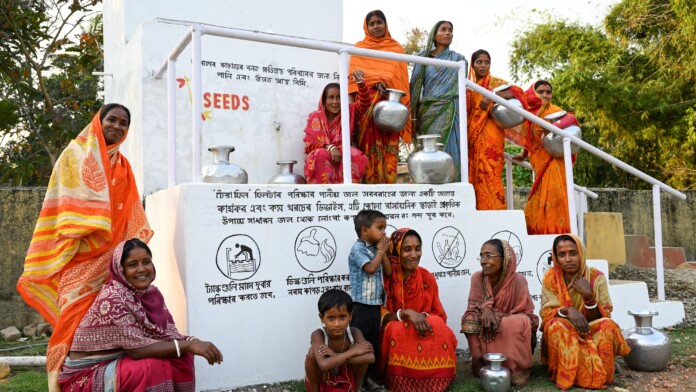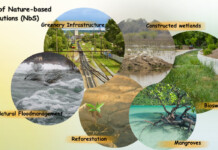The consequences were dire: over 6 lakh people were affected, with many losing their homes and livelihoods. The floodwaters washed away even the highest points, leaving thousands in distress. Major areas affected included Cachar, Udalguri, Dhubri, Karimganj, Nagaon, Nalbari, Dima Hasao, Goalpara, and Hojai.
The aftermath of the floods saw heart-breaking stories of displaced families and individuals wading through contaminated waters. Essential amenities were cut off, roads remained submerged, and clean water became a scarce resource. The most marginalized communities, particularly children, adolescents, and women, bore the brunt of the disaster. The risk of water-borne diseases increased as people were forced to use polluted water sources. Agricultural land and infrastructure were severely damaged, exacerbating the struggles of those already living in poverty. In Cachar district alone, nearly 3.56 lakh people were impacted, with 38,751 people seeking refuge in relief camps.
SEEDS’ Immediate Relief Efforts
In response to the pressing needs and urgency of the situation, SEEDS (Sustainable Environment and Ecological Development Society) stepped in to provide immediate relief. SEEDS collaborated with local partners and volunteers to distribute dry rations, hygiene kits, school kits, and other essential items to the affected families. Their inclusive targeting ensured that the most vulnerable and excluded communities received timely and need-based support. SEEDS also focused on clean water access by undertaking well chlorination in the most affected villages, starting with Konapara in Kalain block, where community wells were contaminated.
Project Ashraya: Rebuilding and Resilience
Following the devastating floods, SEEDS launched Project Ashraya to aid in the recovery and rebuilding of Cachar, Assam. This initiative aimed to rebuild a resilient community by addressing the immediate and long-term needs of the flood-affected areas. SEEDS constructed 10 Terra filters designed to remain above floodwaters, providing clean drinking water to 1,500 families. Additionally, 200 ASHA workers from Jalalpur and Kalain Primary Health Centres underwent specialized WASH training, enhancing the community’s capacity to handle water, sanitation, and hygiene emergencies. SEEDS also repaired and upgraded infrastructure at four school buildings, equipped them with solar lighting, and ensured they could serve as future relief shelters. The head teacher of Krishna Chandra lower primary school in Lakhipur village of Kalain block of Cachar Sajal Kant Dey said that the “Flood waters quickly submerged the school compound, the walls, the roof and classroom floors and precious desks were completely damaged. Thankfully, the school has been restored and the children are now returning to a daily routine,”
Future-Proofing Cachar: Steps Toward Sustainability
SEEDS’ efforts to future-proof Cachar focused on restoring essential services and building community resilience. By repairing schools and restarting important functions at primary health centers, SEEDS helped the community recover and prepare for future challenges. Awareness campaigns emphasized the importance of safe drinking water and healthy hygiene practices. SEEDS’ initiatives, including the construction of Terra filters and WASH training for health workers, embodied a community-centric approach to disaster risk reduction.
Dr. Manu Gupta, Co-founder of SEEDS, also said that “The North-Eastern part of India is a recognized climate hot spot. The rising frequency and intensity of climate incidents are significantly impacting lives and livelihoods. The SEEDS team, with a decade-long presence in the state, has strategically worked over the past two years to ensure that rebuilding schools and primary health centers is done with a focus on enhancing community resilience. “These efforts aimed to create a sustainable and resilient environment, ensuring that the people of Cachar could withstand and recover from future disasters more effectively.
Through Project Ashraya, SEEDS not only provided immediate relief but also laid the groundwork for long-term resilience, helping the people of Cachar rebuild their lives and look towards a safer future.










